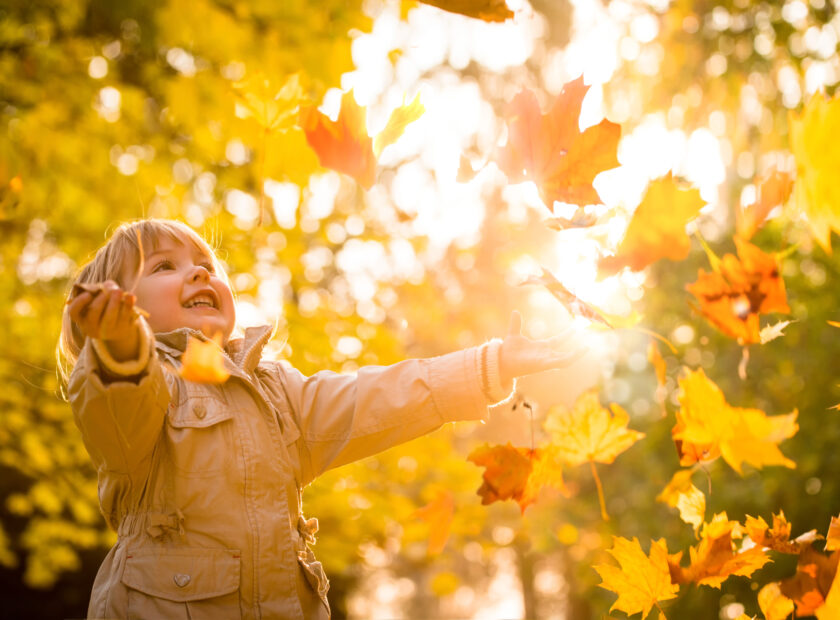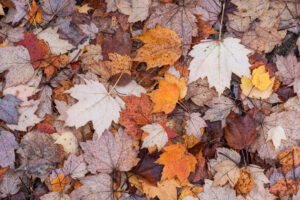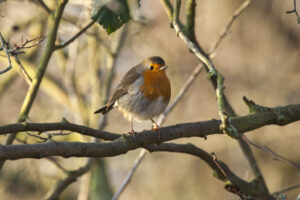Thriving in nature during autumn

Our Marketing and Communications Assistant, Steven, writes about how you can thrive in nature this autumn in our latest blog.
Autumn – The season of morning mists, starry skies and rust coloured leaves.
Autumn can be a wild and wonderful time of year. If we are lucky, it starts with an Indian summer and we get some warmth and sunshine before winter hits.
In June I wrote a how-to thrive in summer blog with tips from the Mental Health Foundation and WWF UK from their free guide book #ThrivingInNature. This time we will look at the tips on how to thrive in nature in Autumn.
Use Your Senses
See – The trees put on an amazing display of colour in autumn as they prepare for the winter. It is a great time for a nice and relaxing woodland walk or visit a collection of trees in a park or garden near you. You can turn your walk into a fun game by asking yourself which trees are more orange, more red, or more yellow? Which trees have held onto their green hues the longest? And can you catch a falling leaf before it hits the ground?
Smell – The fallen autumnal leaves. Grab a handful of leaves from a pile under a tree and lift them to your nose. What does it smell like to you?

Hear – Robins singing from trees, bushes and hedges. There is something soothing about listening to robins sing. They are one of the few birds left singing at this time of year, as they stake their claim to territory.

Feel – The distinctive smooth surface of a conker or an acorn, as the oaks, horse chestnuts and other trees drop their seeds before winter.
Taste – Freshly picked apples. Many fruits ripen at this time of year so there are chances to go and pick juicy fruits to eat fresh or to try a new recipe with.
Get outside and…
…Gaze at the moon and stars
In the autumn you might wake up to find mornings mists out the window, leading to bright chilly days. The dark evenings are not quite winter temperatures so it could be an ideal time to go outdoors to see the stars.

As we move towards winter, some of the most well-known shapes formed by stars start to become visible earlier in the evening or morning.
You don’t need any equipment to enjoy a starry sky (except perhaps some warm clothes) but if you have a pair of binoculars this can help you see the moon in surprising detail (especially if it is not full) and look deeper into areas with lots of stars to find the many more that the naked eye cannot see.
Wellbeing benefits:
- Relaxation and mindfulness;
- connecting with others;
- being part of something bigger.
Top tip: Try to give your eyes around half an hour to adjust to the dark, after which time you will see many more stars. While out there avoid using a torch and, if you need to, it is better to either have a red-light torch or tape a red sweet wrapper over the end of an ordinary torch – this helps your eyes to stay adjusted to the dark. Also, go with a friend so you are not alone at night and let someone know where you have gone in advance.
…Plant a tree or volunteer for conservation work
Volunteering to help your local environment has many benefits for you and others. Autumn is the tree planting season in the UK, so you could join a local initiative to do this or even plant one in your garden if you have the space! Other activities across the year could be as varied as fixing fences, establishing wildlife ponds, sowing wildflower seeds or building ‘bug hotels’. Do keep an eye on current restrictions before signing up.
If you live near the coast, you could also take the initiative to do a regular afternoon litter picking or beach clean. Bring along some friends or family to join you!
Wellbeing benefits:
- Time in green spaces;
- staying active;
- connecting with others;
- creativity;
- gardening,
- conservation and farming;
- being part of something bigger.
And there is a lot you can do to help nature thrive around your home, such as planting bee-friendly flowers, putting up a bird feeder and table (particularly important in the autumn and winter months) or building a hedgehog house in time for hibernation.
That’s autumn! To learn what you can do during other seasons, download the #ThriveInNature guide book. Also, let us know on our social media platforms what you plan on doing to thrive in nature this autumn.
|